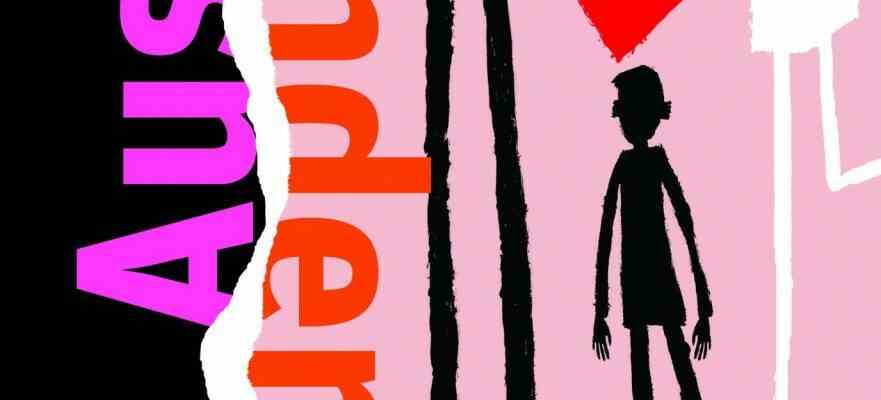This book of poetry by Bette Westera is a book about love as you see it, how you recognize it: “When I see you, my heart suddenly beats faster. / When I see you, it hits me like a blow / When I see you, I got it trembling knees, / When I see you, my brain becomes like a sieve. / … Do I dare? It will be at the end? / I will walk towards you / give you a kiss!”.
In 44 poems, ingeniously adapted by Rolf Erdorf, love is shown in all its facets, as surprising happiness, but also as sadness between parents and children. How it arises, but also how it falls apart. “Apart” is also the title of the book, which is already torn in half on the cover while a child watches his parents kiss.
A few poems further on, a boy experiences how mum and dad change partners, later examples of separations follow, but always new attempts and the hope for happiness. And it’s a child who makes sense of everything: “My father is a dear one, / my mother is a sweetheart, / but that the two of them together … I’ll say it / in one sentence: / I can’t understand that , / I’m really sorry. / I’m actually / their one, only thing in common.”
The volume is bound in traditional Japanese book art. Each page is only written on one side and then folded. The word “commonality” of the last line is on the “back”, it is separate from the rest of the sentence and yet it is still part of it. Again and again, frustration and sadness are replaced by hope. Sometimes there is a sarcastic undertone – the parents’ divorce stories are absurd – they even fight over the goldfish in the glass. “… the goldfish are ashamed to die”.
Bette Westera & Sylvia Weve: Apart. Translated from the Dutch by Rolf Erdorf. Rieder Verlag, Munich 2022. 64 pages, 28 euros. From 8 years.
(Photo: Rieder Verlag)
The cheerfulness and lightness, the naïve comedy that can sometimes be felt is reflected in the graphics by the artist Sylvia Weve. They play with collages or quotes from Miró and Picasso, and dance across the pages with unusual shapes and colours. For example, when a boy suddenly sees the benefits of two fathers taking turns pampering him (a third wouldn’t be bad either!).
Almost at the end, the complicated life between two parents even leads to a letter to the Ministry of Education: “Dear Ministry of Education, / couldn’t we do it like this: / four weeks longer summer holidays / for everyone with two sets of parents.” Signed by 126 children.

